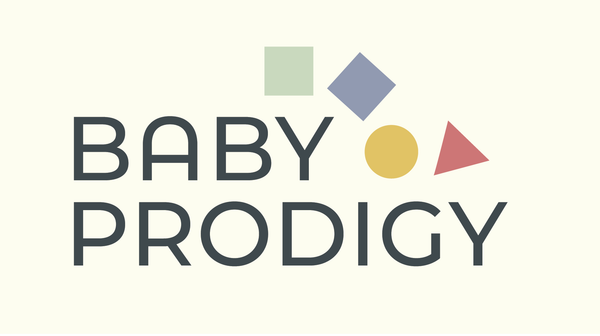Simple toys, smarter minds. That’s not just a philosophy—it’s science. At Baby Prodigy, we believe in the power of purposeful, natural play. Our Montessori-inspired wooden toys aren’t just beautiful and durable—they help children develop essential cognitive skills, supported by real research.
Here’s what the latest studies reveal about how Montessori toys support brain development—and why less really is more when it comes to toys.
1. Montessori Toys Improve Executive Function
One of the most significant benefits of Montessori-style play is the development of executive function—the set of mental skills that includes focus, working memory, and self-control.
A 2017 study published in Frontiers in Psychology compared children in Montessori programs with those in traditional classrooms. The results?
Montessori children scored 13% higher on executive function assessments.
(Lillard, A., & Heise, M. J., 2017)
This boost in brain function comes from a learning environment where children direct their own play, make choices, and explore hands-on materials—exactly the kind of experience that Montessori toys provide at home.
2. Fewer Toys, Better Focus
Montessori play is intentionally minimal. And there’s science behind that approach. A 2018 study from the University of Toledo looked at toddlers who were given either four toys or sixteen toys to play with.
Toddlers with only four toys engaged in 108% more focused playtime.
(Dauch et al., 2018)
They also showed more sophisticated and imaginative use of the toys. This means fewer, well-chosen toys—like those in our curated wooden collections—can actually lead to deeper learning and creativity.
3. Wooden Toys Support Sensory & Motor Development
Why wood? It’s not just about aesthetics. Natural materials like wood offer real textures, weight, and temperature changes—something plastic or battery-powered toys don’t.
In a 2015 study published in Early Child Development and Care, researchers found that:
Children who played with wooden and textured toys showed a 26% improvement in fine motor skills over 6 weeks.
(Trawick-Smith et al., 2015)
The tactile quality of wooden toys strengthens hand-eye coordination and helps children better connect touch with thinking—an essential foundation for later learning.
4. Montessori at Home = Smarter Toddlers
Even without attending a Montessori school, using Montessori principles at home makes a difference. A 2020 study from the University of Virginia found that children raised with Montessori-style play environments at home showed:
24% higher cognitive flexibility and
30% more growth in working memory between ages 2 and 4.
(Lillard, A. S., 2020)
By giving toddlers access to open-ended, self-guided play tools—like puzzles, stacking toys, and shape sorters—you’re helping shape how their brain thinks and adapts.
Why Montessori Wooden Toys Work
Here’s what makes Montessori wooden toys so effective:
-
They teach one skill at a time – helping children master concepts like size, color, and sequence
-
They’re open-ended – allowing kids to use their imagination and problem-solving
-
They avoid overstimulation – no noise, screens, or flashing lights
-
They build confidence and independence – letting children lead their own play
The Bottom Line: Smart Play Starts Simple
Montessori wooden toys don’t just entertain—they build brains. Backed by research and grounded in developmental psychology, they offer children the best foundation for lifelong learning.
At Baby Prodigy, we thoughtfully design and curate each toy to support this kind of meaningful play. Because your child deserves toys that are more than just fun—they should be formative.
Explore our Montessori toy sets
https://babyprodigy.co/collections/montessori-playsets
Let your child learn, grow, and thrive—one beautifully simple toy at a time.
